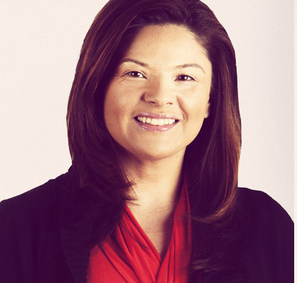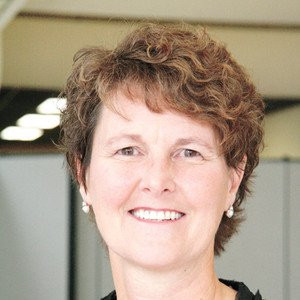It’s All About Education: Failure to Launch - It’s Not Just a Movie
Wednesday, April 08, 2015
There has been a lot of buzz recently about “Failure to Launch” syndrome, a term coined to describe young adults who are still dependent on their parents, often unable to hold down a job or move out on their own. Many have completed college, but seem to be either unmotivated or unsure of how to establish themselves as independent people. As a result of the growing interest in this phenomenon, special programs are popping up to support parents as they try to encourage their adult children to move on: for example, the Optimum Performance Institute offers a transitional living program in Woodland Hills, California. The program includes intensive counseling and life coaching to all participants. Heron’s Gate, a program in Columbia, Maryland, offers similar services to families on an outpatient basis; young people continue to live at home while attending the program.
The Pew Research Center found that a record number of young adults were living with their parents in 2012, with 36% of all 18 – 31 year olds still at home. If we narrow that age range to 18 to 24 year olds, more than 56% were still residing with their parents. Today, 16% of all 25 to 34 year olds still can’t seem to strike out on their own. A working paper from the Federal Reserve Board found that rising debt – increasing loan balances, low credit scores, and account delinquency – increases the amount of time that young adults continue to live with their parents. The debt carried by college graduates has increased every year, with over 70% of the Class of 2014 owing an average of $33,000. This rise has affected the housing market; young adults with student debt are less likely to pursue home ownership, and the United States has the smallest percentage of 30 year olds with mortgages in a decade. NBC News suggested that rising debt may also be contributing to a delay in marriage; the median age of marriage has risen from 20 for women and 23 for men in 1960 to 27 for women and 29 for men today.
Earlier this year, I wrote about the rising costs of college and ways to help alleviate those costs. But there are other alternatives, as well. Most people seem to agree that high school graduates need time to mature and learn about themselves and the world before entering the workforce, and almost everyone believes that further education after high school is a necessity in today’s global economy. Today, the widely accepted way for high school graduates to gain this maturity and experience is for them to attend college and receive either a two-year or a four-year degree. Suppose there were other options?
GET THE LATEST BREAKING NEWS HERE -- SIGN UP FOR GOLOCAL FREE DAILY EBLASTIn Germany, almost 60% of young people train in apprenticeships, in trades like manufacturing, information technology, banking and hospitality. In fact, there is an extensive network called EuroApprenticeship, designed to promote, implement and enhance learning mobility for apprentices aged 16 to 26 throughout Europe, with more than 28 member countries. Successful completion of an apprenticeship program generally takes 2 – 3 years. In the United Kingdom, students can search the government website for assistance in finding job training and apprenticeship opportunities, in addition to higher education and loan programs. Here in the US, fewer than 5% of young people train as apprentices, most in the construction trades.
Some high school students may not feel ready to pursue further education immediately after graduation, but there are few other options available to them. Many boarding schools offer a postgraduate or PG year, and some students choose to travel during a “gap year,” but both of these options can be quite expensive. What if we had more programs offering real-world experience through a yearlong service program, like City Year or AmeriCorps? Today, only about 80,000 young people participate in these programs each year (in fact, City Year turns away three out of four applicants). Perhaps instead of funding two years of community college for all students, as President Obama has proposed, our government should expand programs that offer job training, hands-on experience, and life skills.
Currently, the American education system is not doing a great job of preparing all of our students to enter the workforce. College graduates still earn, on average, 98% more per hour than people without degrees, so many students feel justified in taking out loans to finance college. However, if those students are unsure of their interests or their goals, they increase their likelihood of dropping out, transferring or switching majors (both of which can result in more time spent in school acquiring that degree), or graduating with a degree that may not translate well to a career. We can do better by providing more career and college counseling to high school students and by expanding our definition of “higher education” to include alternatives to college. Perhaps “failure to launch” has more to do with the launch pad than with the rockets themselves.
Lauri Lee is an independent consultant with over twenty years of experience in both public and private education, with learners from infants through adults. With experience in teaching, marketing, communications, social media, development, admissions, and technology, she is able to synthesize many of the issues facing our educational system today. She lives in Providence, RI with her family, a big dog, and a small cat. She blogs at http://www.AllAboutEducation.net and you can follow her on Twitter at @fridovichlee.
Related Slideshow: RI Experts on the Biggest Issues Facing Public Education
On Friday November 22, the Hassenfeld Institute for Public Leadership at Bryant University, the Latino Policy Institute of Roger Williams University, the Rhode Island Association of School Committees, the Providence Student Union, and RI-CAN: Rhode Island Campaign for Achievement Now will host Rhode Island leaders in the public and nonprofit sectors for a symposium on "the civil rights issue of the 21st century, adequacy and equity and the State of Education in Rhode Island."
Weighing in on the the "three biggest factors" facing education in the state today are symposium participatnts Gary Sasse, Founding Director of the Hassenfeld Institute for Leadership; Christine Lopes Metcalfe, Executive Director of RI-CAN; Anna Cano-Morales, Chairwoman of the Board of Trustees, Central Falls Public Schools and Director, Latino Policy Institute at Roger Williams University; Tim Duffy, Executive Director, RI Association of School Committees; and Deborah Cylke, Superintendent of Pawtucket Public Schools.
Related Articles
- It’s All About Education: What is an “Excellent” Teacher, Anyway?
- It’s All About Education: Will Charter Schools Fix Our Public School System?
- It’s All About Education: Can Universal Preschool Close the Achievement Gap?
- It’s All About Education: How Can We Ensure that Kids Have Great Teachers?
- It’s All About Education: The High Cost of Higher Education
- It’s All About Education: Why Common Core Won’t Help Our Children
- It’s All About Education: What if College Isn’t Necessary
- It’s All About Education: Chronic Absenteeism’s Effect on Learning
- It’s All About Education: Student Engagement Leads to Success
- It’s All About Education: Making the Dream a Reality
- It’s All About Education: Playing in the Woods Can Help Kids Reach Their Full Potential
- It’s All About Education: The Rise in Kindergarten Readiness Testing
- It’s All About Education: Some of Education’s Best Ideas from 2014
- It’s All About Education: Changing Lives with School Lunches
- It’s All About Education: How Vaccination Affects Schools – and Society
- It’s All About Education: How Breakfast Could Help Close the Achievement Gap
- It’s All About Education: Choosing the Right School for Your Child
- It’s All About Education: After School Programs Make a Difference
- It’s All About Education: Is the American Dream a Pipe Dream?
- It’s All About Education: Inequities in the College Admissions Process
- It’s All About Education: Social Promotion is Not the Problem
- It’s All About Education: Schools that Harness the Power of Nature
- It’s All About Education: Free College Tuition - Why Just Community College?
- It’s All About Education: A Recipe for Disaster - Common Core Standards for Kindergarten
- It’s All About Education: Learning Life Skills at Hope High













